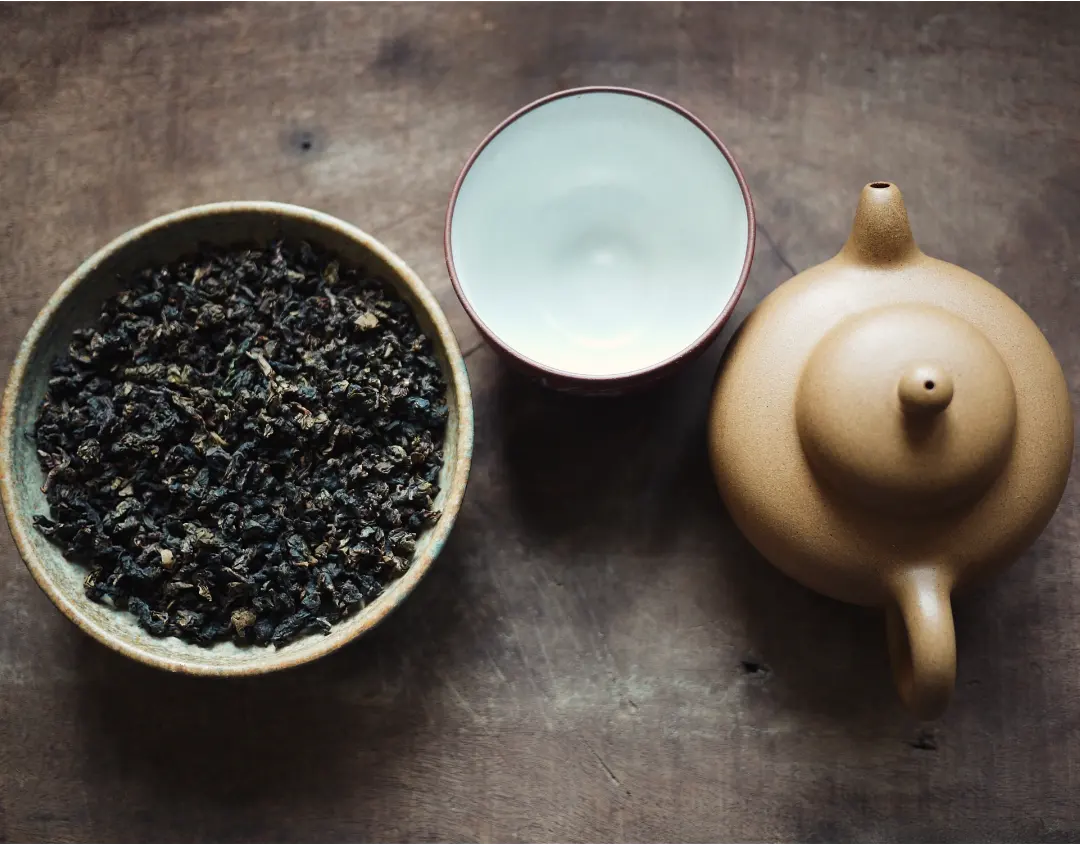
An Xi Da Ping Rou Gui
Share

An Xi county is renowned for its prime oolong tea production, with most villages specializing in the cultivation of Tie Guan Yin. However, many villages also dedicate their efforts to growing Se Zhong oolong teas and other cultivars introduced since the 20th century. In Da Ping village, my preferred oolong is the delightful Rou Gui. The news from my tea friend and producer, Mr. Zhang, about receiving a fresh supply brought immense joy, especially as it had been a while since I last enjoyed this tea. Rou Gui made its way to An Xi from Wu Yi in the 1970s, distinguishing itself from the Se Zhong category established in the 1950s.

For this session, I will be using a beautiful early 2000's Duan Ni Yixing teapot. This one has been raised with medium to heavily roasted oolong teas and as such it should works pretty well. The ratio is 8 grams for 150ml of water that has been brought to a boil and used at around 90c.
In the dry state, the small tea leaves showcase a pretty high level of tightness and the color and size are pretty even. the dry leaves give toasted, sugar cane with a hint of dry plum aromas with an evolution towards roasted cereals. A subtle indication of tamarind complete this spicy and flowery profile.

The tea liquor has a lovely golden hue with good clarity. In mouth, the tea shows a full-bodied liquor even past the fifth brew. The first few brews give roasting notes but we can already taste the sweet and flowery flavors. In the back, a fruity layer evoking the taste of green guava in mouth with a fruity aftertaste evoking the taste of green guava. The tea builds up nicely and coat the mouth, it does have tannins and a strong tea taste but these can be control with water temperature and especially the tea ware. Here, the tender duan ni Yixing reduces the firing aromas and attenuate an otherwise highly flavorful tea. The tea has good length and can endure a lot of brews. When pushed, the flowery profile changes from a bold flower to an elegant white one and all roasting notes are gone past the 6th brews to leave a tea liquor that has lost a little bit in thickness and transformed itself into something polished.
This is an oolong tea that needs to be brew gong fu style. It really provides an interesting tasting experience with a tea that starts as something very bold to turn into something rather delicate. This was confirmed later after switching the Duan Ni for a Xiao Hong Ni Yixing teapot. The liquor had retained a certain thickness but the flowery profile was much more exuberant.

